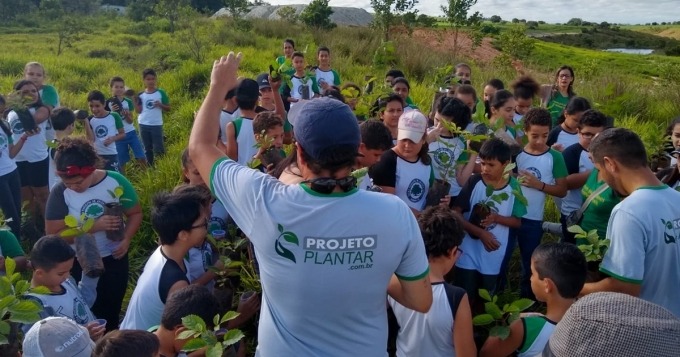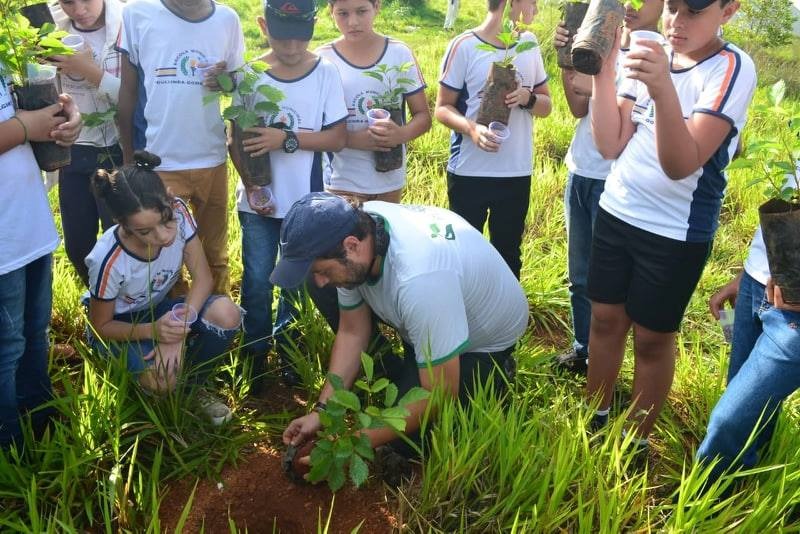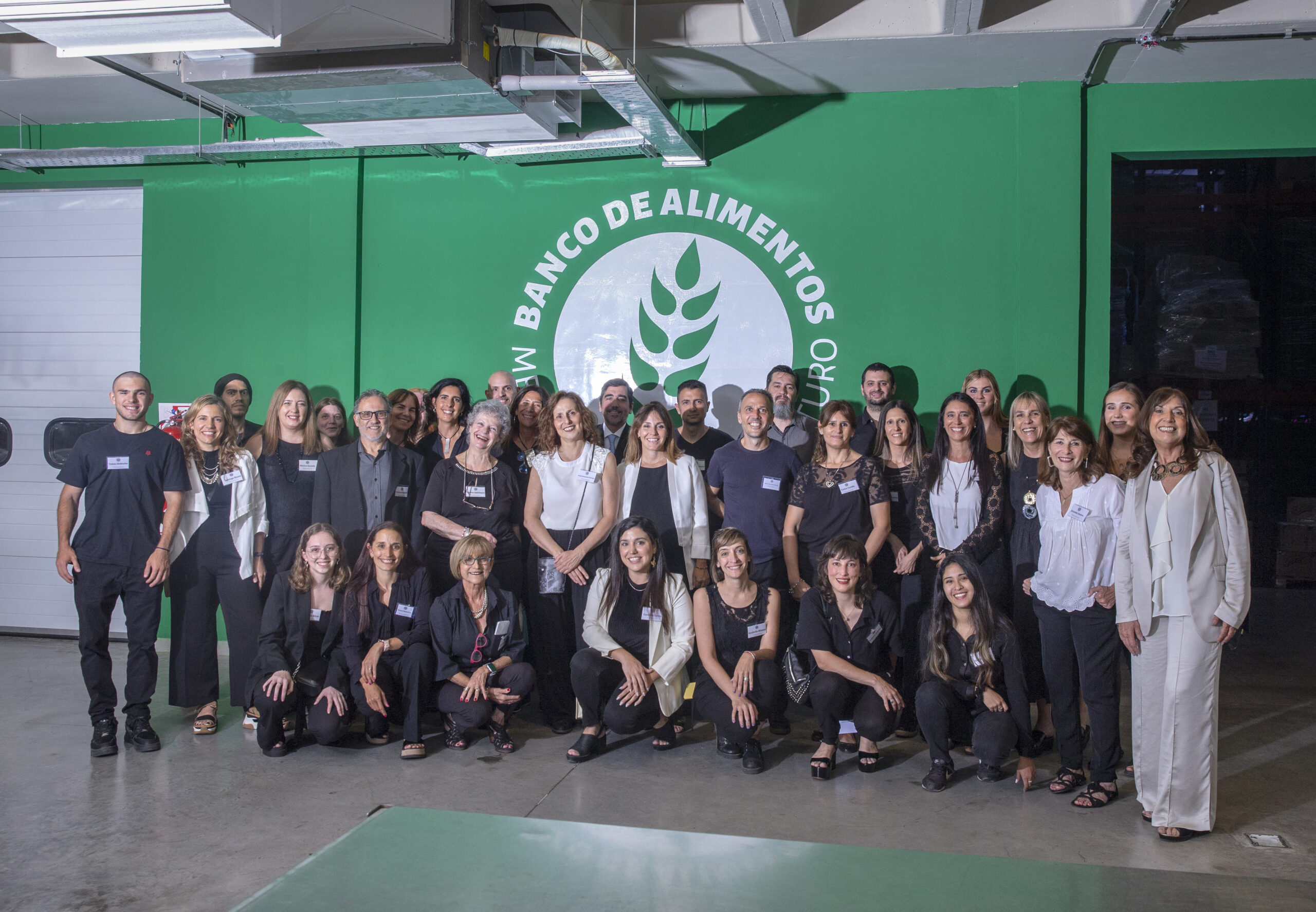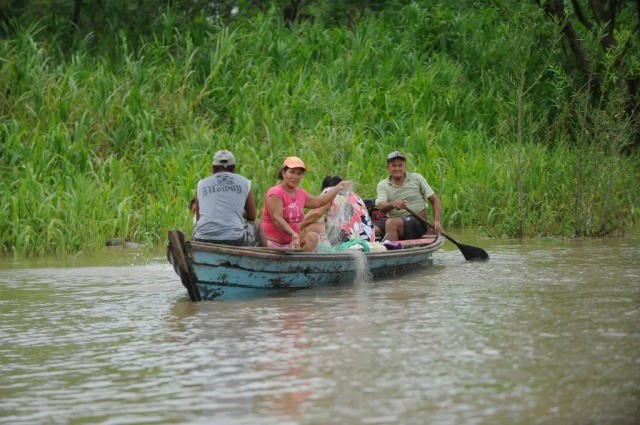Plantar Project promotes awareness of harm reduction in the environment
The initiative raises funds from companies that want to reduce gas emissions and promotes free reforestation to rural family farmers

Photo Credit: Disclosure
By: Renato Silva / Lupa do Bem — Favela em Pauta
It is not new that the eyes of the world are focused on the climate situation of the planet and, in Brazil’s biomes, the situation is no different. Whether at the North American Summit of Leaders on Climate, or the 26th United Nations Conference on Climate Change, COP-26: deforestation, among other issues that affect the environment and climate, moves entire economies, in addition to several public and private areas in countries like Brazil.
According to the Annual Report on Deforestation in Brazil, produced by Mapbiomas, in 2020 there was a 30% increase in the number of identified, validated and refined deforestation alerts compared to 2019. The report pointed to a 14% growth in the area deforested also concerning the last year.
Faced with this scenario, both governments and large companies are mobilizing around the world to reduce damage to the environment. In Brazil, initiatives are emerging on the part of civil society, which have in the future the reason for the acts of today, as is the case of Projeto Plantar, an organization that carries out the planting of native seedlings in areas of environmental degradation.
Founded in 2018, on World Environment Day, the initiative promotes, with reforestation, the planting of a greener future and the seed of example. This occurs through campaigns such as “Empresa Amiga da Natureza”, or in events and actions carried out by companies focused on the environment.
Financing expanded possibilities for action
The founder of Projeto Plantar, André Xavier, says that the initial idea was to promote the adoption of seedlings, as a form of inclusion so that people with physical disabilities or those prevented by limitations related to age could plant a tree. However, after 2019, funding from companies broadened the vision to other possibilities.
“We started with the ‘nature-friendly company’ seal and today, 95% of the planting we do is promoted by private companies. The other 5% are made through adoptions on the website itself”, says André.
He also states that this financing made possible one more action, free of charge and focused on family farming. “We work with free reforestation for rural family farmers, as long as it is voluntary reforestation. That there has not been any type of assessment, the environmental notification”, he concludes.
Another emblematic partnership of Projeto Plantar is with Hospital Nossa Senhora do Brasil, under the name of “Certidão Verde”. From this union, each child born in the municipalities of Bambuí, Medeiros and Tapiraí has a tree planted in their name, and the family receives a certificate with the child’s name, the title of “friend of nature” and an estimate of tons of carbon that that tree will withdraw from our atmosphere.
For Alexandre Henrique Pires, a member of the Executive Coordination of Articulation in the Brazilian Semiarid Region and coordinator of Centro Sabiá, it is necessary to remember the responsibility of the public authorities for the recovery and treatment of areas degraded by agribusiness and large companies, but he emphasizes the importance and validity of the civil society initiatives that reduce the damage caused by these actions. “They are extremely valid [initiatives such as Projeto Plantar]. I would say that we need to encourage this to happen more because the business sector in Brazil is extremely conservative: it just wants to profit, and does not want to build possibilities of reducing its profit to guarantee a more sustainable production process”, he says.
Plant the fruits for a better environment in the future
The bet to make most of the project’s activities viable is the Empresa Amiga da Natureza campaign. In it, the company, which adheres to the campaign, finances lots of 100 or 1,000 native trees, equivalent to the sequestration of 19 or 190 tons of carbon from the atmosphere in up to 20 years.
The partnership is associated with a seal that the company can use on its networks, website and product packaging or labels. “Our objective is to eliminate the CO₂ emitted by each partner company, through ecological footprint calculations for each segment”, says the project’s advisory.

For the company that adheres to the campaign, there is a way to follow the stages of the process through the website, from germination to post-planting. Monitoring can be done by the employees themselves or even in promotional campaigns for customers. There are four stages seed germination, seedling production, planting — with geographic coordinates and a link to follow up via Google Maps — and post-planting follow-up.
For André Xavier, this monitoring needs to be done very closely, to make planting just a first step toward long stories. “If you plant a batch of 100 native seedlings and don’t follow them, even in a favorable environment, practically 10% of these seedlings will survive. So, planting is just the first step, monitoring is done individually in the first three years. With the fight against the ant, fertilization, if the seedling dies, we plant it again, it is the close monitoring that does”.
When thinking about the future, the project founder aims to cover the Serra da Canastra circuit with thousands of new native trees. “Our goal is to plant one million seedlings in up to ten years, and have a representation in each of the 14 municipalities [of the Serra da Canastra circuit]. Today we are active in 8 of these 14 municipalities, and we have representation in four of them”, says André Xavier, who dreams of multiplying the Plantar Project’s activities across the country as soon as he achieves the first major goal.
Service:
Plantar Project
Website | Instagram | Facebook | YouTube


